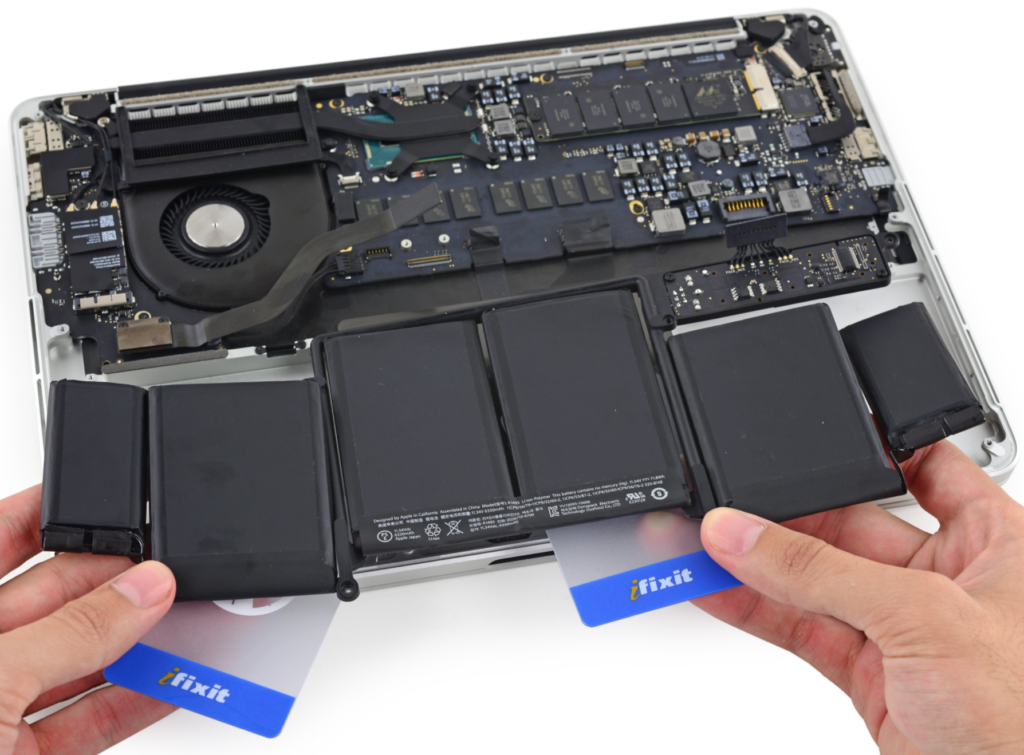
A couple of weeks ago I was working at the pool on a hot day, while my son played with friends. That evening I noticed my Mac was looking a bit fat, it rocked as I typed because the base was bowed. Checking online showed my batteries were reaching the end of the line.
I did the research on options to replace the batteries, as I’m not ready to get a new Mac given the new processor is coming later this year. I had 3 options: have the Apple Store replace for $400 (assuming they’d touch my fat Mac), get the batteries from Amazon for $50, or from iFixit for $100.
iFixit convinced me to DIY, and several videos in the iFixit community showed not all the steps need be followed if you use twine to remove the battery from the base. I uses dental floss and skipped the steps removing the speakers. I was very gentle with the fat batteries, it took about 10 minutes from opening the case, replacing the batteries, to closing the case and seeing the machine power-up, phew!
My only frustration was the delivery time, I ordered on the 31st Aug at 2:45PM ET, and it was delivered at 8PM ET on 8th Sept. So no videos or pictures of the battery replacement, I just got straight to it as I needed to power cycle the battery to get it calibrated before another work day.
I gave a presentation at the OpenSIPS Distributed Summit using my fat Mac. My experience in choosing iFixit reminded me of the discussions we had at the Summit around the social contract assumed in open source. It made me realize I’d followed a social contract with iFixit. iFixit convinced me. Reading the Amazon reviews showed people commented on how they used iFixit steps, while buying the $50 batteries, not following a social contract.
It’s not a great analogy, but I thought it was relevant. Without iFixit I would either be either paying $400 at an Apple Store to replace a battery in a laptop I was planning to change in 12-18 months, or just getting one of the last Intel based Macbooks. iFixit gave me options, and also more willing to DIY some of my other devices as it really was quite simple, a matter of confidence yet again.
I could have taken advantage of iFixit, bought a $50 battery from Amazon and used their guide. But that cheats iFixit from all the work they do in empowering the consumer. I think iFixit need to be explicit in the social contract, if iFixit is key to helping you DIY, then you should seriously consider supporting them.
Open source software is similar, it empowers organizations large and small to have vastly more options, for doing a little bit of engineering. Open source projects should make the social contract explicit. Some people will still take advantage of them, but for those people their God, Karma, or perhaps even their conscience may even things out in the long run.
